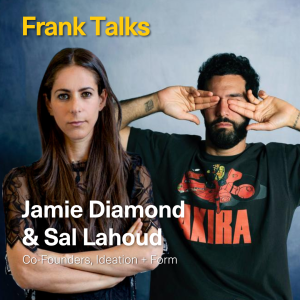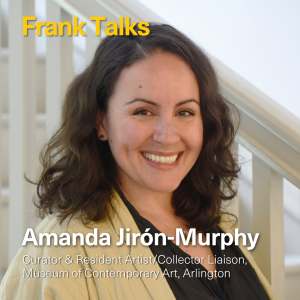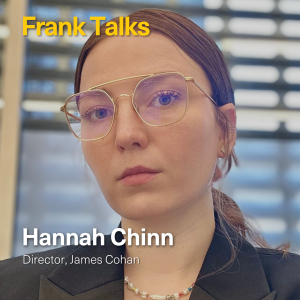This week we sit down with Leah Kuttruff! Originally from the Philadelphia area, Leah currently works at Christie’s New York as a Post Sale Coordinator. Previously, she has held roles at a primary-market gallery, the Art Loss Register, Freeman’s Auction House, and Christie’s Events team in London. Leah is the Communications Director for Christie’s Employee Initiatives group, and has moderated quarterly panel discussions for the company’s Women’s Leadership Network. She holds a BA from the College of Charleston and an MSc from the University of Glasgow / Christie’s Education London.
What was your first job in the Arts?
My first exposure to working in the arts was an internship at a small gallery specializing in abstract and impressionistic paintings while I was in college.
What was the most useful or important thing you learned at that job?
I learned to take every opportunity to carve my own responsibilities out of a role. For me, that meant identifying the need for a social media presence; it was 2015, and Instagram had really started becoming a valuable marketing tool for art.
Tell us a little more about yourself. When did you realize you wanted to pursue a career in this industry?
I feel like I was a bit of a late bloomer here. I was originally interested in working in International Relations, and centered my studies around that intention. My first exposure to the study of art was an Art History 101 class, which I found myself failing at midterm. My studying methods were all wrong! Once I whipped myself into shape, I realized how much I enjoyed the material. It took until after graduation and several discouraging attempts to break into the International Relations field to really sit down with myself and decide what I wanted. I found myself at a crossroads – I would likely need an advanced degree to comfortably break into either ultra-competitive field and guarantee myself some sort of longevity. I knew I’d feel more fulfilled and excited learning about the art market – so I pursued a master’s degree with Christie’s Education in London.
What do you do now?
You can now find me at Christie’s in New York, working as a Post-Sale coordinator for a portfolio of our auctions.
Where are you from?
I’m from Lower Merion, Pennsylvania.
What is the arts community like there?
We’re incredibly fortunate to be just 20 minutes from the heart of Philadelphia, meaning easy access to the PMA, the iconic Barnes Foundation (which, prior to its 2012 move to the Parkway, was just up the street from my house!), and some amazing public street art. There are also several preeminent art schools in the city; Temple, Drexel, and PAFA to name a few.
Has where you come from shaped what you do in the arts today?
Aside from the geographic location, my family has always been full of entrepreneurial “creative types.” My mother is an interior designer, my siblings are in the film/TV and music fields, and I’ve had extended family in stage productions and graphic design.
What is the best piece of advice you can give about working in the art world?
Patience and good relationships are the two most important things you can develop in your career; this applies both to career advancement and to client engagement. I’d also like to remind everyone that that “no” doesn’t mean “never,” it means “not right now!”
What is one of your greatest accomplishments in your career so far?
I am the Communications Director for Christie’s Employee Initiatives team, and we are currently in the final stages of planning a charity event that is larger and more dynamic than anything we’ve put on before. The event will feature a silent auction and exhibition of emerging artists’ work from across the map, as well as a partnership with ping pong bar SPIN and several live art performances; all proceeds from the event are to benefit the Luminos Fund. The response to our outreach has been overwhelming, and we’re expecting several hundred attendees – so very excited.
What has been a challenge for you?
If I’m being honest, it would be learning to develop that patience that I mentioned earlier. The art world can be incredibly slow-moving and rooted in practices that might be a bit dated; learning to pick your battles on what to hold back on – versus what to tackle in terms of change – has been my biggest practice in patience.
What is something you do every day at work?
Provide “Exceptional Client Service”! My role is client-facing, and involves a significant amount of negotiation, coordination, and hand-holding. Our clients expect the best from us, and it’s our responsibility to deliver that white-glove service that one expects from an institution like Christie’s.
What is one of the weirdest things you have had to do on the job in your career?
Some things I’ll have to keep to myself, for the sake of client confidentiality… but during my internship at the Art Loss Register, I handled outreach to our law enforcement counterparts in hopes of picking up leads on stolen/lost watches (we’re talking Patek Philippe, Cartier, Richard Mille). I was essentially cold-calling everyone from the London Metropolitan Police to a small sheriff’s office in Texas to a precinct in Brooklyn. I was always so nervous! The Met was familiar with us, but the NYPD handled me with a healthy dose of skepticism.
I’ve also had to compare the stickiness of off-brand Post-Its in comparison to the real thing – this is life-or-death work, people.
What defines a good employee? What defines a good boss?
A good employee is one who not only kills it at their role, but asks for more ways to help, and creates their own added responsibilities. Someone who is informative, inquisitive, excited, and helpful.
A good boss communicates well and provides constructive feedback. They consider their employees’ aspirations, and foster opportunities for growth.
What do you think makes a person hirable?
Outside of work ethic and skill, do they really want the job? Would they bring a welcome presence and character to the role?
What is your advice to making yourself stand out in your workplace?
A good friend told me once that employees are rewarded when they (1) save the company money, (2) make the company money, or (3) positively impact the company culture. I think of this often.
What are things you can do proactively boost your CV?
Take on “extracurriculars”. Whether that’s through your company’s CSR efforts or external volunteer opportunities, it’s a great way to expand on your experience outside of your current role.
Are there any tips you can give people entering the workforce?
Be humble, patient, kind, and ready to learn.
In your experience, what are things to do and things to avoid during an interview?
A definite “do”: ask questions. I’ve been told by some interviewers that if the interviewee has no questions for them, their CV is all but scrapped after the meeting.
A definite “do-not”: don’t go into the interview without doing your research! Do a deep dive. Look at Linkedin. Look at Glassdoor. Ask your connections – don’t get caught “out of the know.”
Any other anecdotes about your experience in the art world that you would like to share?
I wouldn’t know where to start – you encounter some truly wild things in the field.
What is the best exhibition you have seen in the last year?
Radical Love at the Ford Foundation Gallery, 30 Americans at the Barnes, or Coffee, Rhum, Sugar & God at MoAD. You might sense a theme here…
If you could own a work by 5 different artists, who would be in your collection?
I love texture, color, and dimension. If I couldn’t default to something from everyone on Mariane Ibrahim’s roster, I’d go with Magritte, Chloe Wise, Mickalene Thomas, Ghizlane Sahli, and Florine Démosthène.
Opinions expressed are solely the interviewee’s own and do not express the views or opinions of Christie’s.




